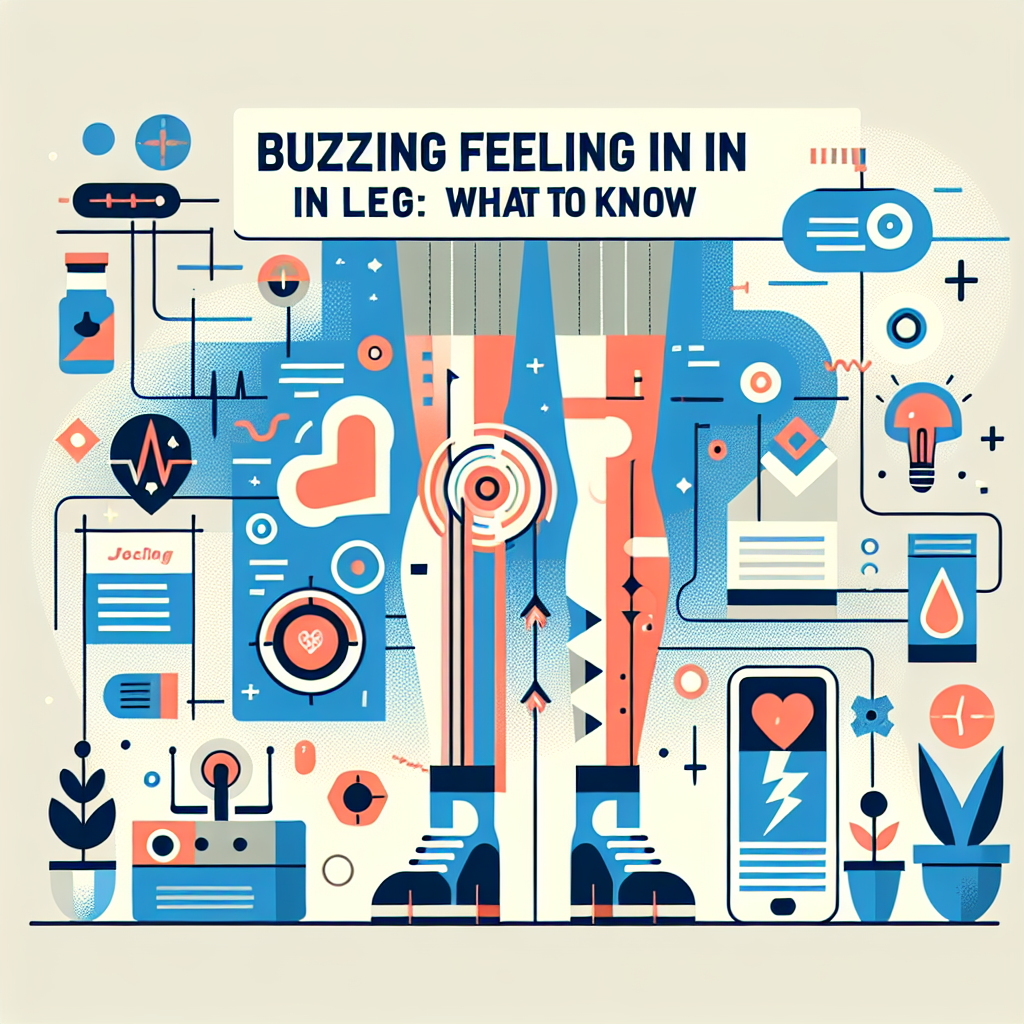Feeling an odd vibration or a buzzing feeling in leg can be unsettling, especially when it comes on without pain or an obvious cause. Many people describe it as electricity-like, a low hum, or a fluttering beneath the skin. This article explains common reasons for that sensation, when to seek medical attention, and practical steps you can take to reduce or resolve it.
Understanding a buzzing sensation in leg
When someone reports buzzing in leg, clinicians first consider nerve-related causes. Peripheral nerves relay sensory information; if they are irritated, compressed, or injured, you might experience tingling, numbness, or a vibration-like feeling. A vibration feeling in upper thigh no pain can still come from nerve root irritation (radiculopathy) or benign muscle fasciculations. Less commonly, vascular issues, medication side effects, metabolic imbalances, or anxiety can produce similar sensations.
Common causes
- Peripheral neuropathy: Conditions such as diabetes and certain vitamin deficiencies can damage peripheral nerves and cause buzzing, numbness, or burning. The National Institute of Neurological Disorders and Stroke describes neuropathy causes and symptoms in detail: NINDS peripheral neuropathy overview.
- Nerve compression or radiculopathy: Herniated discs or spinal stenosis may compress nerve roots, producing sensations that travel down the leg.
- Benign fasciculation syndrome: Small muscle twitches can feel like vibration without causing pain or weakness.
- Circulation and vascular sensations: Though less commonly described as buzzing, changes in blood flow or varicose veins can create unusual sensations.
- Medication or substance effects: Some drugs, stimulants, or withdrawal from substances can cause sensations that make people ask, “why do my feet feel like they are vibrating?”
- Anxiety and stress: Heightened nervous system arousal can create sensations like fluttering or internal vibrating. Reducing screen time and overstimulation sometimes helps; a digital detox guide can be part of that strategy.
How it feels and related descriptions
Descriptions vary: some people say their foot feels like it’s vibrating inside, others report a steady buzz in one spot of the leg or intermittent fluttering in the upper thigh. “Vibration feeling in upper thigh no pain” is a common report and can reflect local muscle fasciculation or referred nerve irritation rather than a dangerous condition. Still, patterns matter: bilateral symptoms, progressive numbness, or weakness require prompt evaluation.
When to get medical attention
Seek medical care if the buzzing sensation is accompanied by weakness, loss of balance, severe numbness, changes in bladder or bowel function, or if it develops after trauma. If you wonder, “why is my foot vibrating inside” and the symptom persists or worsens despite lifestyle changes, a clinician can perform neurologic testing (nerve conduction studies, EMG), blood tests for metabolic causes, and imaging if a spinal cause is suspected.
Managing mild buzzing sensations at home
- Check medications and supplements—review recent changes with your provider.
- Optimize blood sugar, hydration, and nutrition; correct vitamin B12 deficiency if present.
- Reduce stimulants (caffeine, nicotine) and alcohol, which can worsen nerve sensitivity.
- Stretch and strengthen: gentle lower-body stretches and regular movement reduce nerve irritation from prolonged sitting.
- Relaxation and sleep hygiene: techniques that reduce overall nervous system arousal may change how sensations are perceived.
Tests and treatments your clinician might suggest
Doctors tailor evaluation based on history and exam. Blood tests can detect diabetes or thyroid problems; nerve conduction studies and EMG assess nerve and muscle function; MRI can image the spine if radiculopathy is suspected. Treatments range from physical therapy and pain modulation to medications for neuropathic pain or specific interventions for spinal issues.
Most isolated, short-lived buzzing episodes are benign and resolve with lifestyle adjustments. However, persistent or progressive symptoms deserve evaluation to rule out treatable causes.
Takeaways
- A buzzing feeling in leg can arise from nerve irritation, muscle fasciculations, metabolic causes, medications, or stress.
- Mild, brief buzzing without other symptoms often improves with hydration, stretching, reduced stimulants, and rest.
- See a clinician if you have weakness, worsening numbness, balance problems, or if sensations persist.
Q: Why do my feet feel like they are vibrating without pain?
That sensation can come from peripheral nerve irritation, benign muscle twitches, or heightened nervous system sensitivity. If there is no pain or functional loss, conservative measures like reducing caffeine, improving sleep, and checking nutrition often help.
Q: Could a buzzing sensation in my upper thigh mean something serious?
Not usually, but if it is accompanied by weakness, progressive numbness, bowel or bladder changes, or follows an injury, seek prompt medical evaluation to rule out nerve compression or other serious causes.
Q: When should I see a specialist?
If primary care evaluation doesn’t identify a clear cause, or if tests show nerve dysfunction, a referral to a neurologist or a spine specialist may be appropriate for targeted testing and treatment.






